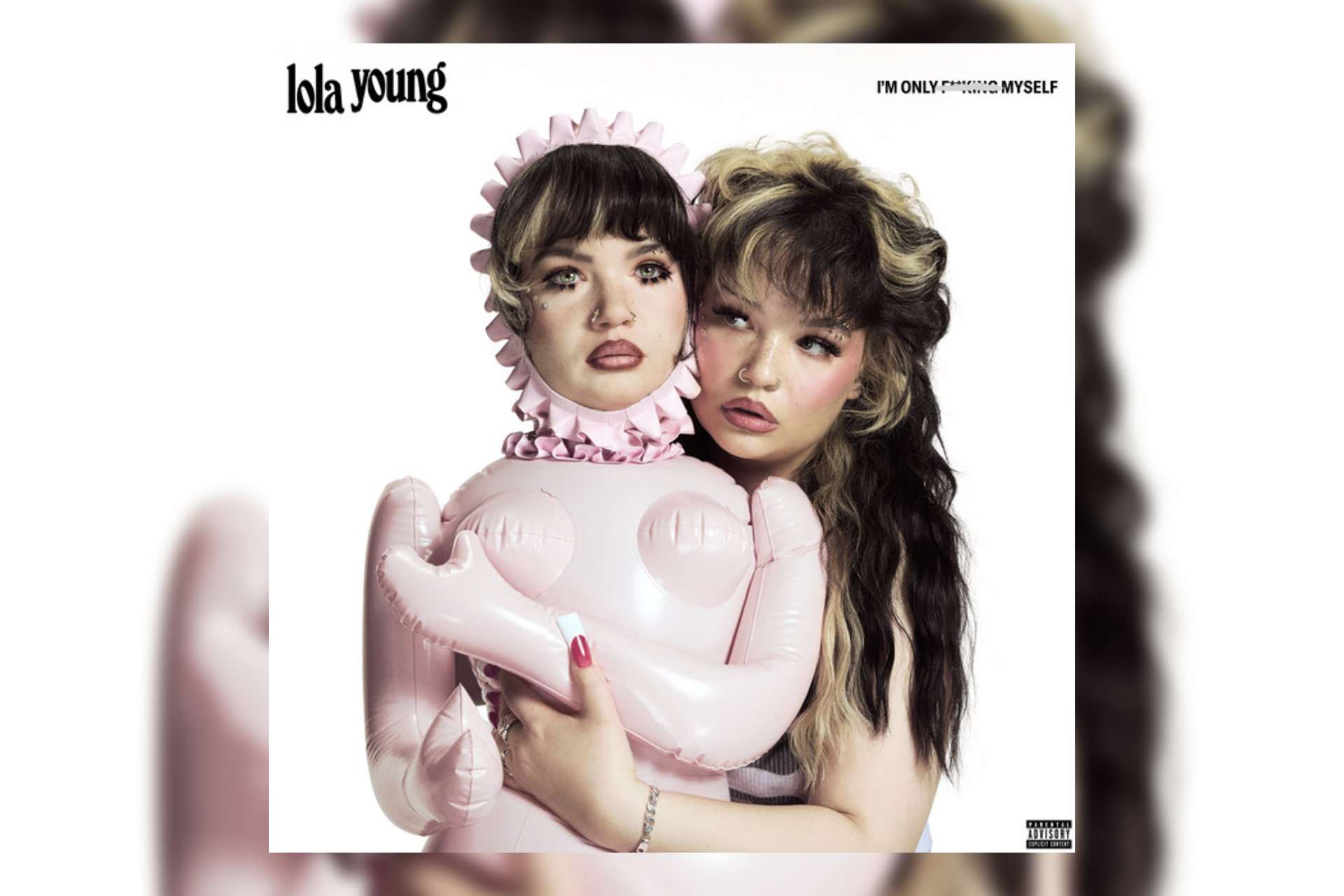Lola Young’s I’m Only F**king Myself, released on Friday, gave her a chance to prove her worth in the industry.
The artist was catapulted into fame following her 2024 song “Messy,” which had a viral moment after topping U.K. charts. Seemingly unable to escape the hit, Young’s upcoming album promised listeners they would see more of her as an artist.
Since her debut in 2019 with “6 Feet Under,” Young’s vulnerability has bled into her music, covering topics such as addiction, sex and mental health. Her lyrics, dramatic but genuine, are even more blunt in her latest album; Young takes a chance and shows her authentic self to the world.
Her playful and candid style on I’m Only F**ing Myself breathes new life into the music industry, revealing the true self she’s been waiting to express. But this side misses more than it hits.
Discussing her imperfections in “why do i feel better when i hurt you,” Young displays self-destruction through lyricism. This track captures her failure to understand her behavior through her emotional sound combined with a quiet and comforting instrumental.
“Let’s not pretеnd we don’t find it hard / Just to accept the pеople we are,” Young sings. “Throw words like punches at you / Shove tables right across the room.”
While authenticity is important in an album, the production and lyrics keep people listening, and those qualities remain inconsistent from song to song.
[Dress to Recess: How Labubus, animal prints could indicate economic downturn]
As a whole, the lyrics on I’m Only F**ing Myself lack meaning and feel repetitive. In “Penny Out of Nothing,” the chorus resembles word blabber without depth.
The lyrics, “Create a penny outta nothing, take a bullet out a gun / I’ll make a fool out of a man, I’ll make a man fall out of love,” are meant to have an impact, but Young fails to convey her message of coping with hardship through distraction.
When envisioning this pop-rock style of songs, I think back to Olivia Rodrigo’s Guts as a perfect example of loud and blaring songs that connect with listeners. The direct lyricism allows for a more refined track with similar production, but simpler and more appealing.
It feels like Young is trying to recreate this sound but falls short, with her lyrics lacking clarity.
The song’s production attempts to tap into the listener’s inner rage. The loud vocals on the chorus and dramatic instrumentals make it the type of song to belt to, but vague, tangential lyrics leave nothing to resonate with.
On the other hand, slower ballads like “who f**king cares?,” provide a more resonating song without the pressure of conforming to a rock-like production.
The verses in “who f**king cares?” show vulnerability that makes people feel seen through music, delving into feelings of depression, substance abuse and loss of hope. Featuring softer vocals, the track has the emotional impact of a demo. It doesn’t get lost in production to overshadow poor lyricism.
Lyrics such as “And am I happy? / Truth is, I don’t really know what that means anymore,”express Young’s hopeless, desensitized feelings, opening a window into the artist’s mind.
[Be the main character on the way to class with these 5 songs]
“Post Sex Clarity” finds Young lost and uncertain in the haze of love. Drawing metaphors between the parallels of physical and emotional love, Young shows her discomfort showing vulnerability — a depth lacking in other tracks.
“When I’m lyin’ in bed, got post-sex clarity / I still love you, and I don’t know why,” Young sings. “Cause every other man didn’t mеan a God damn to me / When I finish, it’s not the еnd of you and I.”
Time will tell whether this album will garner the mainstream attention of “Messy.” Although the pop-rock sections had pitfalls, Young’s raw lyrics excelled in its quieter moments, creating some playlist-worthy tracks.
But the unpolished lyricism and inconsistent sound hinder the chance to cement herself further in the music industry.



